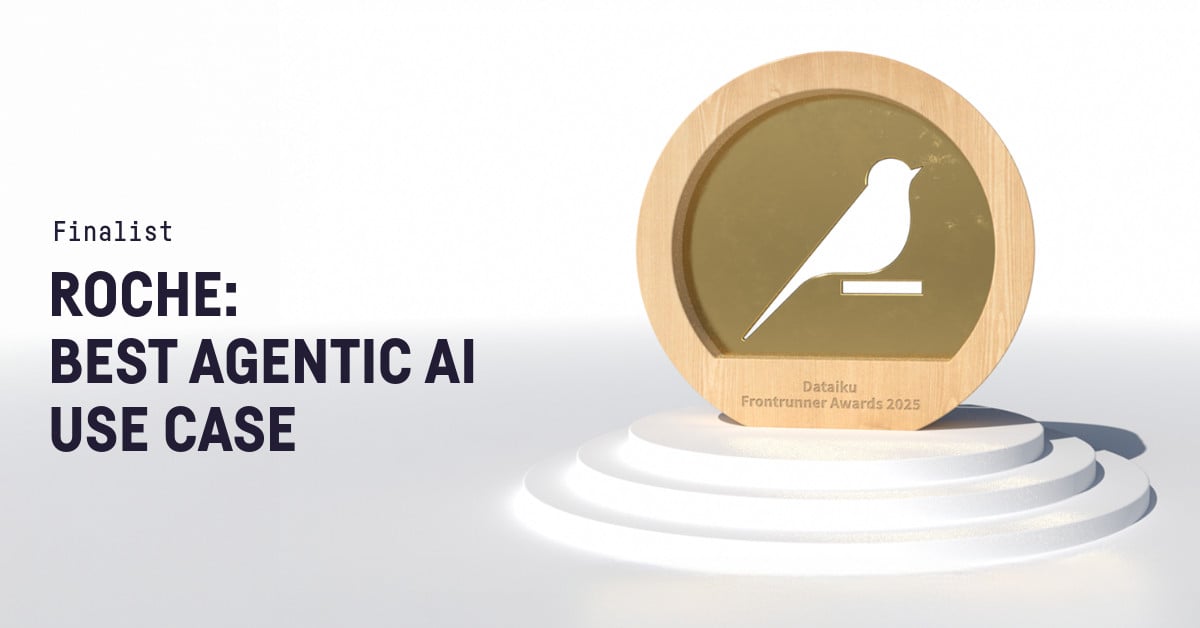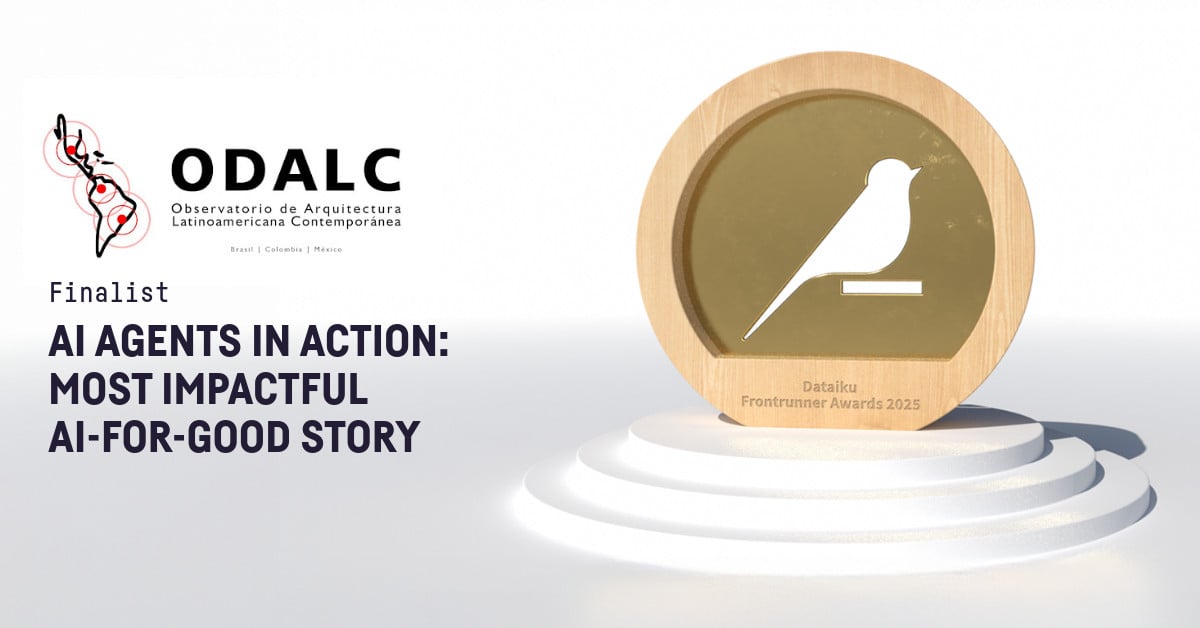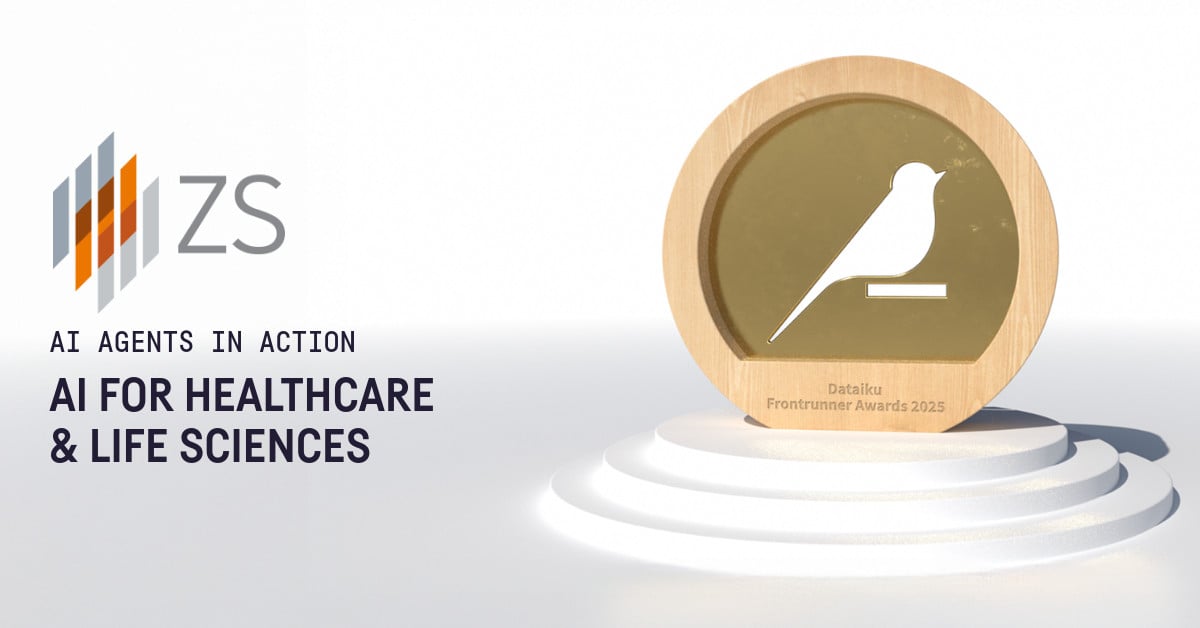Table of Contents
Convex has embedded data scientists and data engineers into business functions throughout the company, notably the actuarial team, to improve underwriting performance and make better decisions with data.
1 Week
(vs. 5 months before Dataiku) to report on the end-to-end reserving numbers
Only Hours
To run the actuarial reserving report with refreshed data (vs. days previously)
At specialty insurer Convex, whether talking about the role of actuaries, architects, or business analysts, data is at the core of decision making. They are building toward the ability to create experiments and prove hypotheses with machine learning (ML) and AI in a quick, easy, scalable way — all while maintaining guardrails and oversight.
That’s where Dataiku and Snowflake come in:
- Dataiku to enable data experts embedded into the business functions to collaborate with subject matter experts on data products to get them productionized in a timely manner
- Snowflake to bring data into Convex quicker
Actuarial Data Transformation
The biggest group of Dataiku users at Convex is the actuarial team. Actuaries use statistics, financial theory, and math to analyze the financial costs of risk and uncertainty. With actuarial reserving, the process that helps actuaries determine how much an insurance company's policies will cost as of a specific date, a large part of the work is arriving at assumptions about what might happen in the future and then apply those assumptions to the current dataset.
Just as it sounds, reserving is a very difficult and high visibility task as it is, essentially, a data science output. The data in the reserves reporting is used by the actuarial team, senior managers, the board, and every underwriter in the company. Together, Convex’s reserving process, called “ReCon,” is made up of Dataiku alongside Snowflake and PowerBI.
Dataiku helps the actuarial team with the ability to take the data, apply assumptions, and report on reserve output by policy at a granular level. This way, the team can slice and dice the data in different ways and see the key information they want to drill in on.
"Dataiku as a platform is like a Swiss army knife for data."
Steve Perry, Head of Data Delivery, Convex
With automation and checks in Dataiku, the actuarial team is able to easily refresh the data in their end-to-end reserving process in a few hours, a process that previously took days. This acceleration helps reduce the overall reserving timeline from what might traditionally take up to five months to just a week — from getting data, analyzing it, meeting with underwriters, agreeing on numbers, and reporting it out to stakeholders.
Further, they have been able to do reserving in a way that will allow them to scale without growing headcount, not only saving time but making the reserving process cost effective for Convex.
The Joint Solution: Dataiku & Snowflake"We are on a journey. Dataiku has added lots of value to Convex, and there’s lots more to deliver in the future."
Ben Sheldon, Group Chief Actuary, Convex
Prior to using Dataiku and Snowflake in unison, the challenges were oriented around process, with data siloed across data warehouses, various applications, and spreadsheets.
Now, having key data in Snowflake and being able to access it through Dataiku allows the Convex team the opportunity to move away from their initial spreadsheet-based approach, formalizing how they work with data and making it available for use in the right places within Convex.
Convex has built what they call a “data universe” from the ground up, which is basically a very large instance of Snowflake where all of their data comes into and they can curate that data, conform it, and produce it for business functions to consume. Choosing Snowflake as their data cloud company of choice enabled Convex to acquire data and bring it into Convex fast, share it easily, and take a centralized approach to the higher-level management of it — all without compromising flexibility.
Actuarial Science Has More in Common With ML Than We Think
The problems that the actuarial team at Convex aim to solve on a daily basis are very complex problems, but the actuarial team themselves are not an engineering team. They needed a platform that would enable them to define and express those complex problems in a way that could be built into a robust process that could be run again and again.
Dataiku enables the actuaries to wrangle data and perform mathematical calculations, as well as leverage Dataiku’s future-proof, open source nature to leverage R and Python packages within actuarial science work. For the Convex team, these Dataiku capabilities made the difference:
- The low barrier to entry and ease of getting up to speed within the platform when just starting out.
- Technical teams can explore enormous data pipelines while less technical teams can get on board with the simplicity of no-code options.
- It enables the team to go beyond spreadsheets to do what they want to do with their data, without needing to be an expert coder to accomplish.
- Ease of collaboration between the actuarial team and data team to establish a process where the actuarial team can express what they want to happen. Then, the engineering team can build that robust, reliable business asset and hand it back to the actuaries to test, and the actuaries can validate it before it gets pushed to production.
- Having all data efforts in a single, centralized platform to avoid opening themselves up to the risks associated with data leaks and fast-moving regulations.
"As a platform, Dataiku is elegant in its simplicity — it has the tools and the languages, and we can put governance and guardrails around it too."
Steve Perry, Head of Data Delivery
Dataiku allows stakeholders to jump in along the journey, with varying kinds and degrees of expertise to apply their knowledge to the process. This level of collaboration enables the organization to develop solutions where value can be clearly communicated and seen from the beginning steps of data projects all the way to final field delivery.
"Dataiku gives us the capability of trying to automate processes and take them out of Excel so we have more time to provide insights and value to our business. We also have the capability of being able to use more data than we've ever been able to use before to enhance some of these analytics. It gives people like me the ability to be able to access these powerful technologies through the no-code option as well as being able to collaborate with people who are much more technically proficient."
Metul Parekh, Actuarial Director at Convex Insurance

GET TO KNOW CONVEX
Convex occupies a unique position in the insurance industry, combining unrivaled experience, reputation, and a legacy-free balance sheet. Convex offers international specialty insurance and reinsurance, along with digital risk management solutions, through operations in Bermuda, London, Europe, and the U.S.
https://convexin.com/INDUSTRY
Insurance
FOUNDED IN
2019
HEADQUARTERS
Hamilton, Bermuda









